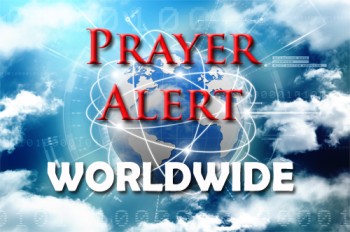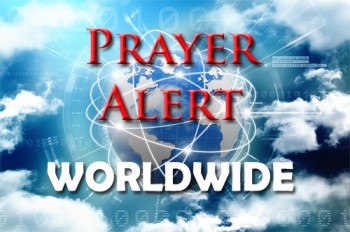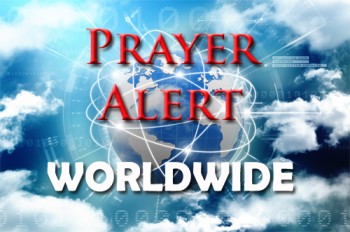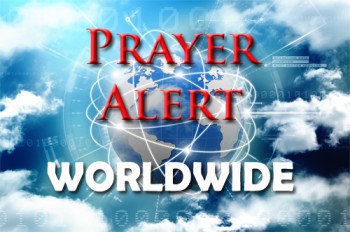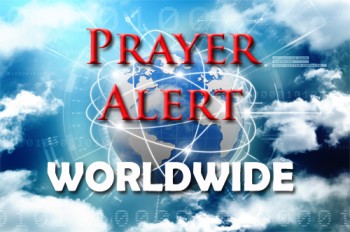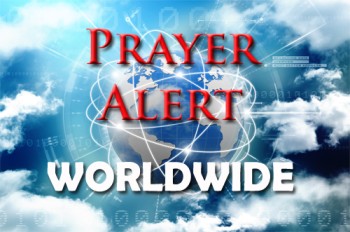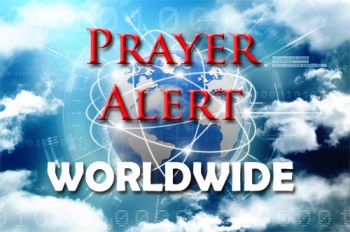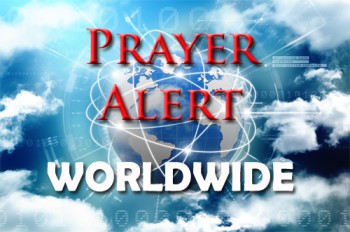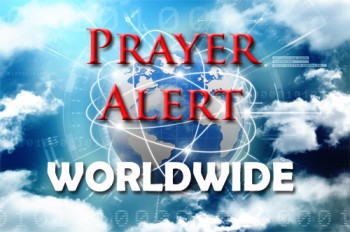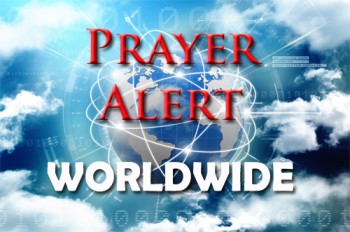Displaying items by tag: Caribbean
‘War against drugs’: USA confirms double strike on a suspect vessel
US military strikes on alleged Venezuelan drug boats are facing intense criticism after reports that a ‘double tap’ attack on 2 September killed survivors clinging to a burning vessel. The White House confirmed a second strike was ordered by Admiral Frank Bradley, saying it was lawful and authorised by defence secretary Pete Hegseth, though officials denied he instructed forces to ‘kill everybody’. More than eighty people have died in similar Caribbean operations since September, yet the USA has provided little hard evidence of drug trafficking. Lawmakers from both parties are demanding investigations, with some Democrats arguing the second strike might constitute a war crime if incapacitated survivors were deliberately targeted. The administration insists it is acting in self-defence against ‘narco-terrorist’ groups, while Venezuela has condemned the strikes as unlawful aggression.
Caribbean: hurricane causes huge devastation, many deaths
One of the strongest Atlantic hurricanes ever recorded, Hurricane Melissa has left a trail of devastation across Jamaica, Haiti, and Cuba, killing at least 33 and displacing hundreds of thousands. Striking Jamaica as a Category 5 storm with winds of up to 185 mph, it tore roofs from homes, flooded entire communities, and crippled power and communication lines across the region. In Haiti, where fragile infrastructure magnified the disaster, scores are dead or missing after floodwaters swallowed coastal towns. Cuba also faces collapsed buildings and blocked roads, with hundreds of thousands forced into shelters. In Jamaica, 77% of the island lost power: emergency services were inundated by floods and unable to conduct emergency operations. Two airports have reopened, with the UN and other agencies ready to deliver aid. Amid the chaos, local leaders and residents describe scenes of heartbreak and resilience - families salvaging what little remains, emergency workers battling through mud and wreckage, and governments scrambling to restore hope. Recovery will be long, painful, and costly.
Haiti: UN votes to create a ‘gang suppression force’
The UN Security Council has voted to expand its international mission in Haiti, transforming it into a ‘gang suppression force’ tasked with restoring order in the country. The resolution raises the force’s personnel ceiling from 2,500 to 5,550 and calls for a new UN support office in Haiti to provide logistical assistance. The mission will work with the authorities to ‘neutralise, isolate, and deter’ gangs, secure key infrastructure, and help stabilise institutions. While Haitian leaders welcomed the move as a lifeline, the Russian envoy described it as ‘an ill-conceived and rushed mandate to use force against anyone and everyone labelled with the vague term 'gangs'’. The Kenyan-led police force, deployed for the last fifteen months, remains woefully understaffed and underfunded. Haiti faces dire conditions: nearly all of Port-au-Prince is under gang control, over 3,000 were killed in the first half of 2025, 1.3 million are displaced, and millions more face hunger.
Haiti: kidnapped missionary is freed
Irish lay missionary Gena Heraty, who has served in Haiti for three decades, has been freed after nearly a month of captivity. She and several others, including a three-year-old child with a disability, were kidnapped during an armed gang attack on an orphanage outside Port-au-Prince. The NGO with which Heraty works, expressed profound gratitude for the release, saying the hostages are safe, receiving medical and psychological care, and reunited with their families. Heraty’s family issued a heartfelt statement thanking everyone, locally and internationally, who helped secure her freedom, and they requested privacy as she recovers. The case underscores Haiti’s worsening security crisis, with gangs now controlling an estimated 85% of the capital. Kidnappings remain rampant, with the UN reporting nearly 350 abductions in just the first half of 2025.
Cuba: minister resigns after saying there are no beggars in the country
Labour and social security minister Marta Feito Cabrera has resigned following widespread backlash over her comments denying the existence of poverty and homelessness in Cuba. Speaking in the National Assembly, Feito claimed that those seen begging were merely ‘disguised’ and that street workers and recyclers lived ‘easy’ lives funded by untaxed income. Her remarks provoked outrage from citizens and leaders alike, including the president, who criticized the lack of empathy and said that the revolution should not leave anyone behind. Amid Cuba’s worsening economic crisis, due partly to the longstanding and widely criticised US sanctions (recently tightened by Donald Trump) but also to fuel shortages and inflation, many are struggling to access basic needs. Feito’s resignation was accepted after she ‘acknowledged her errors’. The incident has sparked renewed debate on the government's handling of poverty, inequality, and transparency.
Dominican Republic: tighter controls on illegal immigration from Haiti
President Luis Abinader has introduced measures to address illegal immigration from neighbouring Haiti, where the continuing violence is forcing many to flee. The new policies, described as ‘painful but necessary’, include charging migrants for hospital services and penalising those who rent to undocumented individuals. He is also increasing military presence at the border and speeding up border wall construction. He said that his country’s resources were strained, and spoke of the burden on hospitals, schools, and security. Human rights activists have criticised the measures as discriminatory and accused the government of abusing migrants. Over 180,000 migrants have already been deported, and stricter penalties will be imposed on those who aid illegal crossings. However, this week the nation’s attention is focussed on a tragedy in the capital, Santo Domingo: at least 184 were killed and over 250 injured after a roof collapsed at a nightclub. See
Cuba: prisoners released despite Trump’s reversing Biden’s decision
Cuba has released 553 prisoners, according to an agreement made in January with Joe Biden’s administration. The deal, mediated by the Vatican, was in return for being removed from the US terrorism blacklist. However, Donald Trump has reversed the decision, reinstating sanctions and temporarily halting the process. The USA had asked for ‘political prisoners’ to be released, but Cuban authorities classified the individuals as having committed diverse crimes. Around 200 of those released had been detained because they took part in the huge anti-government protests in July 2021, though officials claim they were convicted for other reasons. The protests, the largest since the 1959 revolution, stemmed from economic struggles, food shortages, and dissatisfaction with government policies. The release follows pressure from the USA, EU, Catholic Church, and human rights groups to free those jailed.
Cuba: USA set to remove ‘terrorism’ designation
As Joe Biden nears the end of his term, he is set to remove Cuba’s designation as a ‘state sponsor of terrorism’. This decision comes after an assessment found no evidence supporting Cuba’s continued listing. However, with Donald Trump soon to take office, the move may be symbolic and subject to reversal. Cuban officials welcomed the ‘overdue’ action, pointing out the harm which the designation caused to their economy and population. The designation, originally made in 1982 under Ronald Reagan, has been rescinded and reinstated several times. While some Republicans plan to challenge the move, the change could allow US humanitarian organisations to provide aid to Cuba without facing sanctions. In response, Cuba announced the release of 553 prisoners, including some linked to the anti-government protests in 2021.
Trinidad and Tobago: gang violence surges
A nationwide state of emergency has been declared in Trinidad and Tobago following a surge in gang violence which left over sixty dead in December, pushing the year’s murder toll to 623 - the highest in over a decade. Rival gangs are locked in a brutal territorial war, with recent shootings targeting gang members and innocent bystanders. National security minister Fitzgerald Hinds called the violence an ‘epidemic’. Authorities have deployed increased police and military forces, empowered to conduct searches and detain suspects without warrants for up to 48 hours. The dual island nation, strategically located for narcotics trafficking, faces significant challenges from over a hundred active gangs. A previous gang ceasefire collapsed, escalating killings fuelled by alliances with smaller groups. Despite the tension, schools, businesses, and other activities such as the New Year’s celebrations will go ahead as planned. Another Caribbean island, Barbados, is recovering from the devastation caused by Hurricane Beryl: see
Haiti: airport closed, new prime minister, gang violence
Haiti’s international airport has closed for the second time this year after suspected gang gunfire struck two US passenger planes. The UN has also paused helicopter landings, while the US embassy has warned citizens to avoid travel within the country due to unpredictable violence. Haiti’s instability, driven by rampant gang violence, has displaced over 700,000 people and claimed nearly 4,000 lives this year. Further evidence of the country’s fragility came with the ousting on 11 November of interim prime minister Garry Conille, who has been replaced by businessman Alix Didier Fils-Aimé. Many key transportation routes remain under the control of gangs who regularly kidnap bus passengers and truck drivers: many Port-au-Prince residents have no safe way out of the city. In October almost a hundred people were killed in a massacre by gang members sixty miles from the capital.
